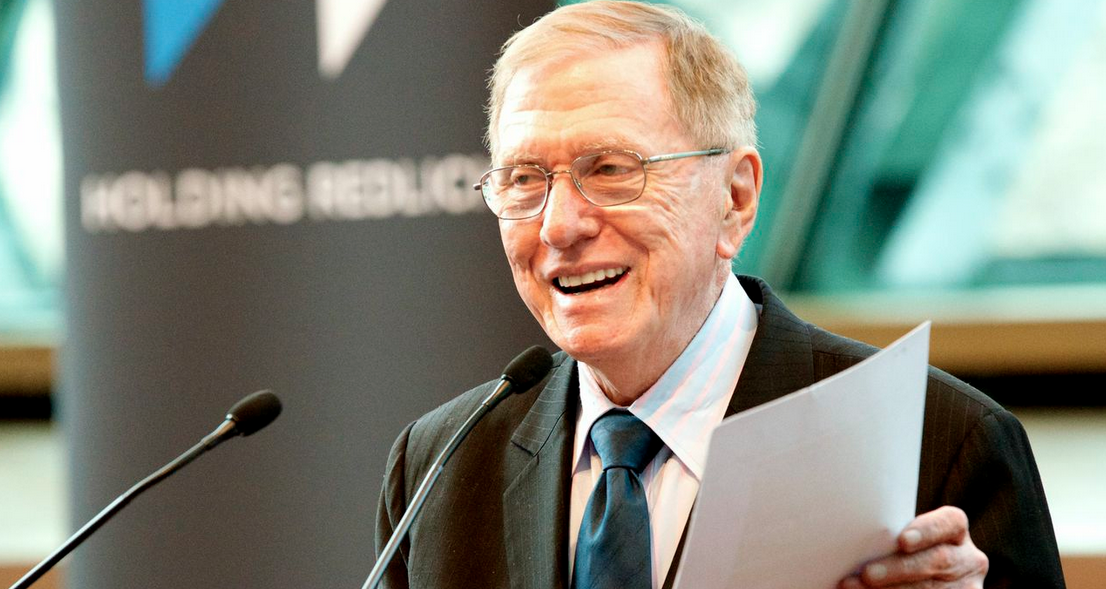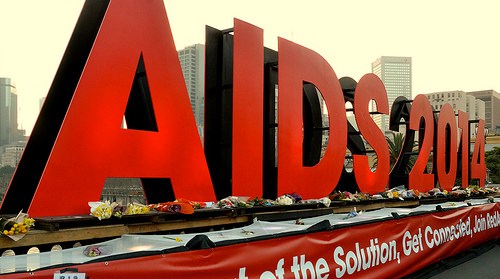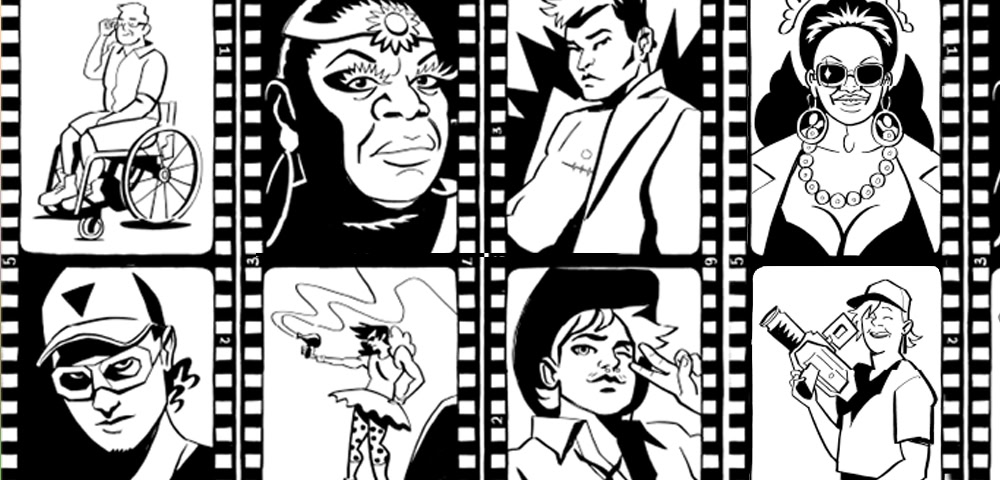
Stepping up the pace at AIDS 2014 with Michael Kirby

WITH the dust of the International AIDS Conference in Melbourne starting to settle after a week of hopeful scientific breakthroughs, community advocacy and a galvanised unification following the MH17 flight tragedy, one relentless LGBTI community supporter continued to show how not take a back-seat in retirement.
That person was Michael Kirby (pictured above), the 75-year-old former High Court judge, current academic fellow and honorary professor to over a dozen universities — and most recently leading a commission of inquiry into human rights abuses in North Korea.
Kirby reflected on his time at the conference — the first one he’s been able to spend the most amount of time at — and the numerous speaking opportunities he received, most notably the opening session and his appearance on ABC’s Q&A panel.
Having one of the world’s biggest medical and community conferences in his home country was significant for Kirby, allowing him the chance to become involved in a far more active role and see the conference from a deeper perspective.
“It made me realise how important the conference is both for the host country and also for the international community,” he told the Star Observer.
“It really does bring together the scientists, the social scientists, the community organisations, the activist groups and people of different perspectives. With that, it’s an unusual global event but it’s been very useful over the years and Melbourne is no exception.”
Kirby had praise for the way in which Melbourne and the local AIDS 2014 conference organisers handled the tragedy of Malaysian Airlines flight MH17, which happened only a few days before the conference started and claimed the lives of six delegates.
“I must say I think Melbourne did us proud. Melbournites tend to be a bit better behaved than Sydneysiders and the opening ceremony showed them on their very best manners,” he said.
“The fact that they invited not only the presidents of the International AIDS Society to come on the stage to honour the former president Joep Lange but that they also invited the entire Dutch delegation to come forward I thought was very moving.
“To see these people, gay, straight, young and old, many of them sobbing, it really brought it home.”
While the tragic news filtered through the media, Kirby was worried the important news coming out of the conference would have been dwarfed by MH17. Much to his appreciation, this was not to be the case.
“I did fear that knowing the way that the media operates, [things like MH17] dominate media stories and [coverage of the disaster] might bump out the necessary information on HIV/AIDS,” he said.
“However both the delegates and the international and local media worked to keep the conference on the front pages and I think in the end we have got possibly more coverage because of the delegates lost in the tragedy.
“It helped us to get our bearings to gain perspective and raise our voices in insistence on the binding lessons of the epidemic.”

For a man that has attended five AIDS conferences before, each time presents itself with memorable highlights and Melbourne was no exception.
“These conferences become the venue of regular reporting on the latest advances in the science and the report of the work of the team at Aarhus University in Denmark, and the experiment with finding the hidden virus in the reservoir and chasing it about into the bloodstream where it can be attacked by ART,” Kirby said.
“This virus is a very cunning devil, it hides and is difficult to attack. So this Aarhus finding may be a very important breakthrough.
“I think the science is always a key matter of the conference. It is unique in a sense in keeping the science, the technology, the social science and civil society all on the same page.”
Kirby also pointed to the community side of the conference being a key highlight and pivotal aspect to the conference, and how the International AIDS Conferences, which occur every two years in different host cities, can be an opportunity for law and policy makers to act.
“Issues relating to minority groups are always a major party of the conference, like the logjam we are facing in respect to laws against gays,” he said.
“The enactment of new and horrible laws in Nigeria, Uganda and Russia, and the growing attention towards sex worker law reform and also people who use drugs.
“The conference can be an opportunity for governments to make announcements that are otherwise postponed or neglected, like the Victorian government’s announcement of its intention to reform Section 19A of the Crimes Act. The announcement by [Victorian Health Minister] David Davis was a very good and timely one and it shows how the conference can stimulate initiatives of this kind.”
According to Kirby, an issue that has never really relented and continues to persist in relation to HIV and AIDS is the stigma that surrounds the disease.
“I don’t think stigma has ever gone away, it’s a bit like the virus itself in that way. It lurks in the dark recesses of people’s minds.,” he said.
“I feel that stigma has been and is being addressed in Australia and things have got marginally better but they certainly haven’t done so in parts of Africa, the Caribbean, in the Russian Federation where horrible laws have been re-enacted that reinforce stigma.”
The importance and significance of having voices from nearly 200 countries all converge during the one conference in efforts of tackling issues surrounding HIV and AIDS, is one that Kirby believes Australia can appreciate.
“This is something Australia can say because I believe this is how we overcame the prejudices of the White Australia Policy. You overcome stigma and hostility when you actually get to meet people from the group that you’re supposed to ‘hate’,” he said.
“So it was in Australia for Asian immigrants and so it is in relation to HIV and the vulnerable groups.”
With regards to former US President Bill Clinton’s keynote speech during the conference, Kirby briefly reflected on the work done by world leaders when they are in and out of office, and called for those in power to do more.
“To be honest I’ve seen so many times in relation to political leaders who become very much connected with the AIDS movement after they leave office, this phenomenon and I only wish more of them would speak up and act when they are in office because that’s when they have power to do highly beneficial things, particularly to address discrimination against gay men,” he said.
Kirby’s well-received appearance on Q&A was also the first time he had agreed to take part in the show.
“I’ve been asked to go on that program many, many times and I’ve never agreed,” he said.
“I have some concern where very serious issues are put into a bear pit where there are either party political disagreements where in Australian terms are often trivial, and which ‘superficialise’ and sometimes try to make humorous some serious issues.
“There was a great flow of communication in regards to HIV. It got the message out to mums and dads including on the issues of sex education in schools which was an important topic that came up during the episode which has not attracted as much attention as it should at the Melbourne conference,” he added.
“You’ve got to start somewhere. If you ask how we’re going to cure the logjam that exists… ultimately it has to start in the schools and the minds of young people. It’s in the minds of young people that the defences to human rights have to be built.”
(Main image: Michael Kirby at the AIDS 2014 conference in Melbourne recently. Photo: David Alexander; Star Observer)









